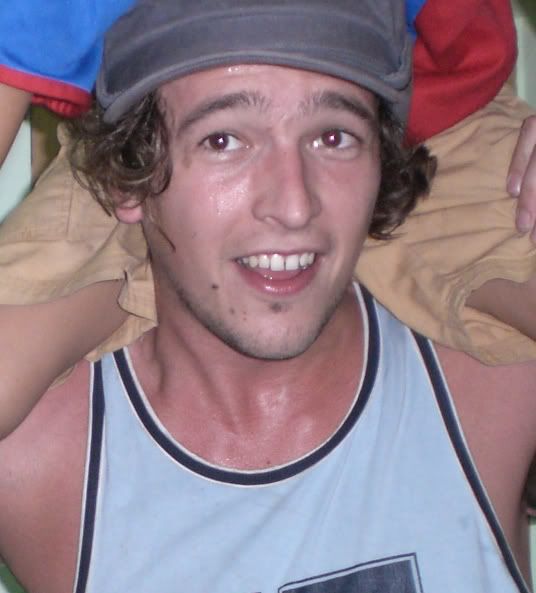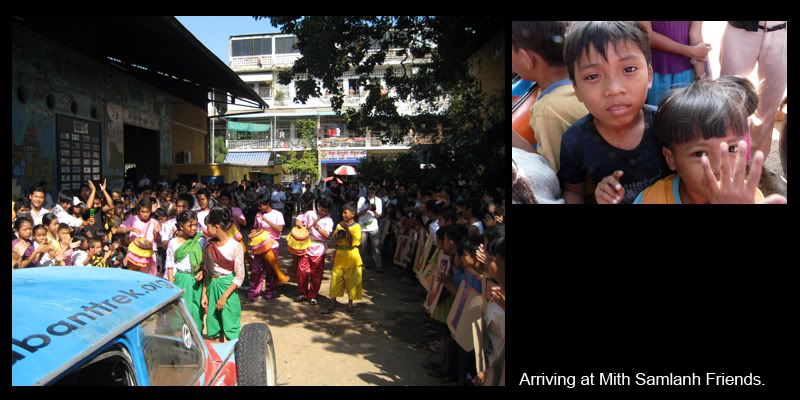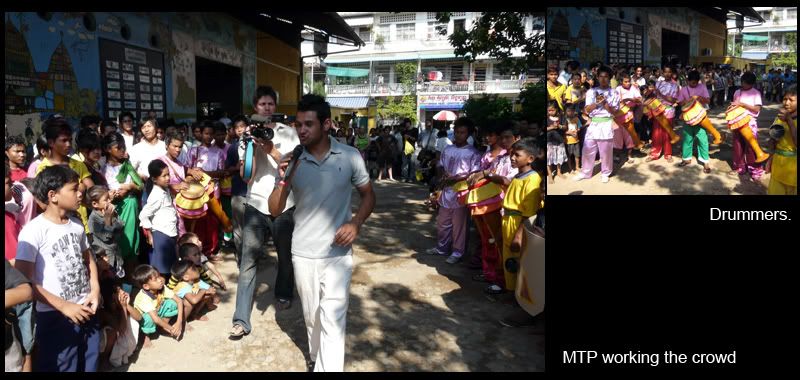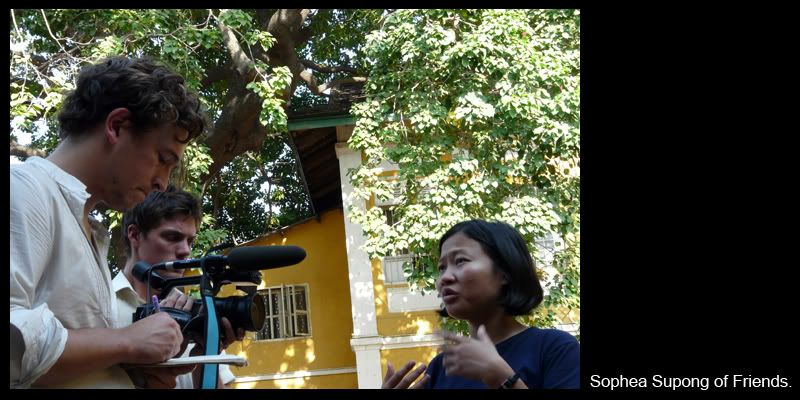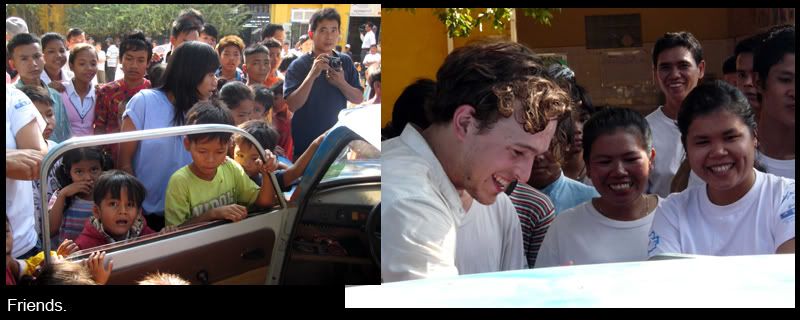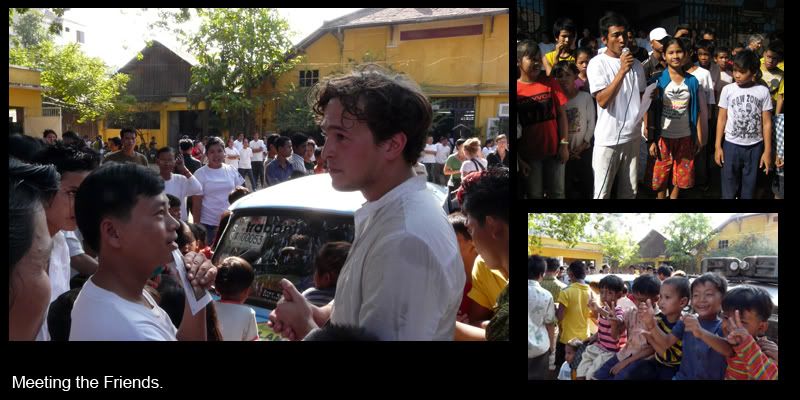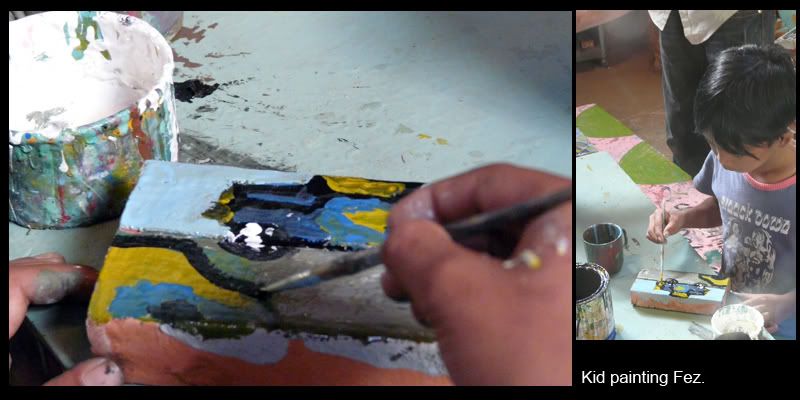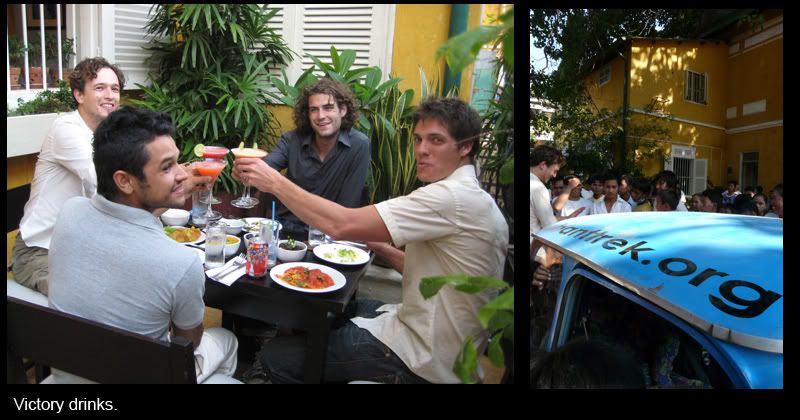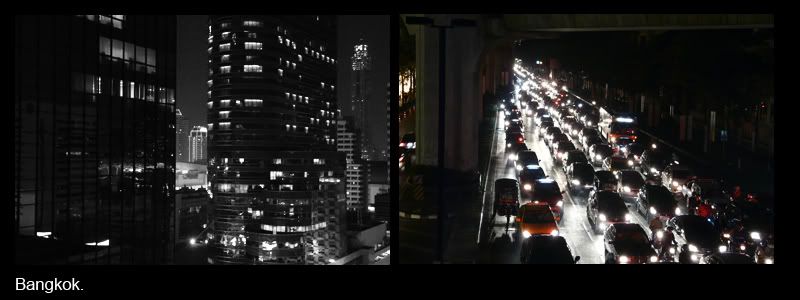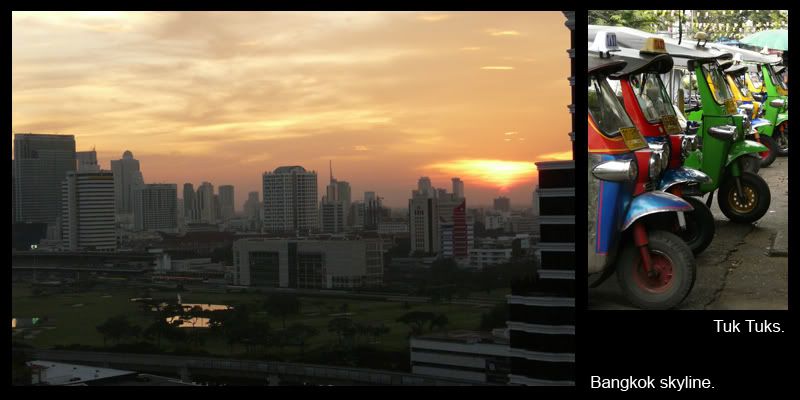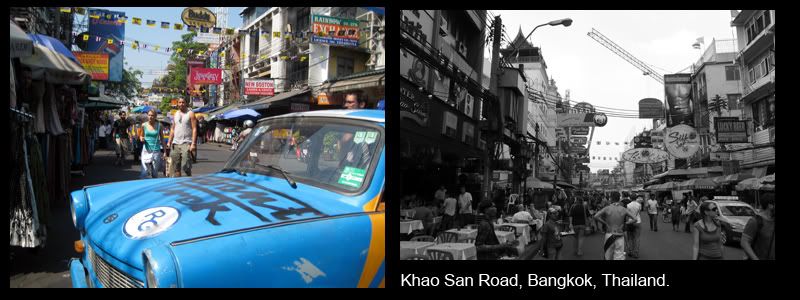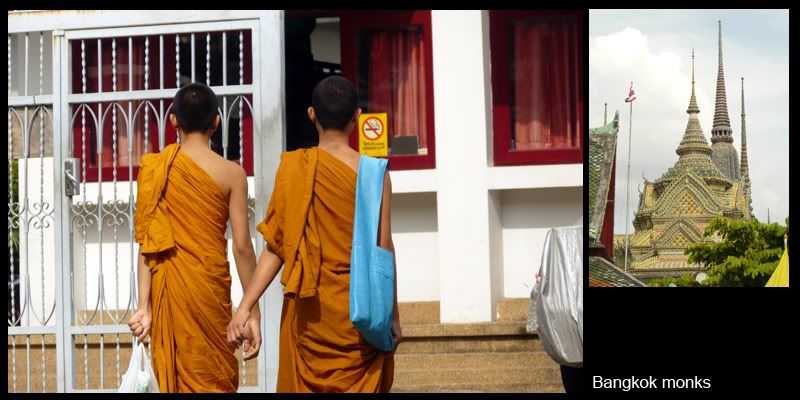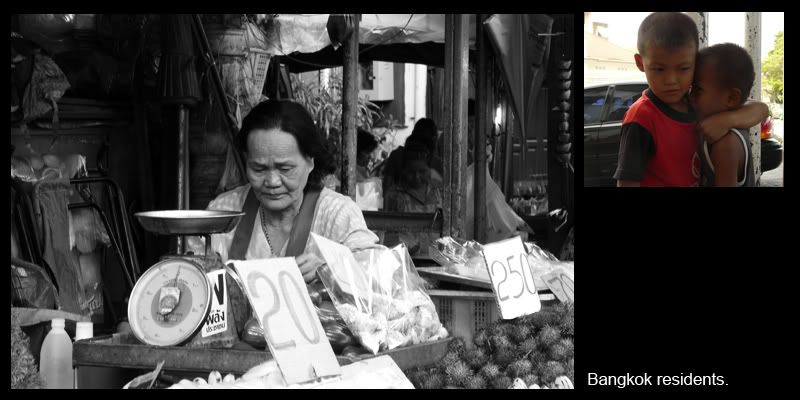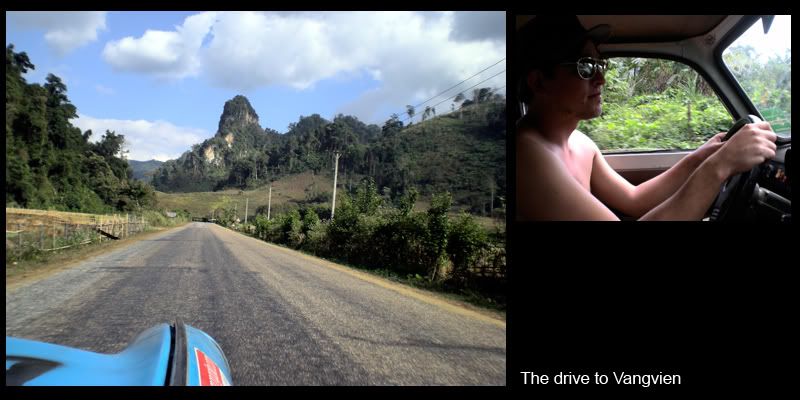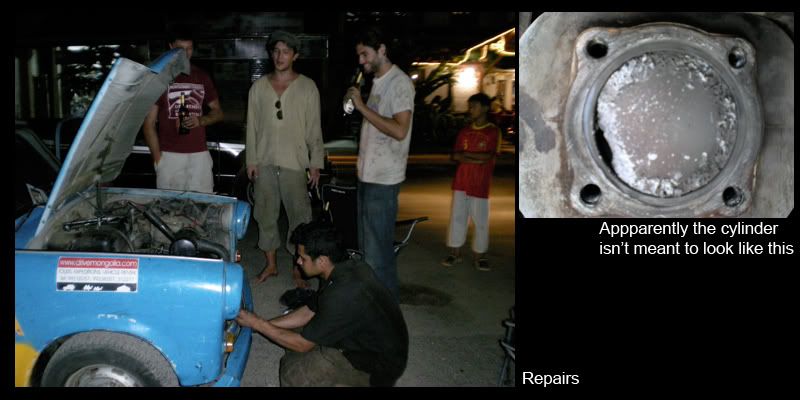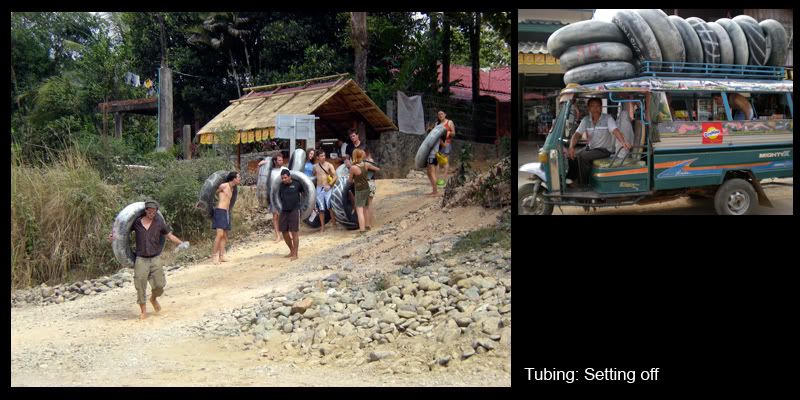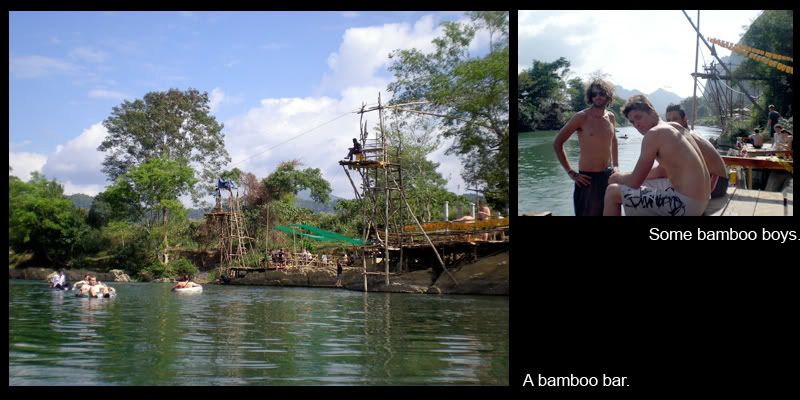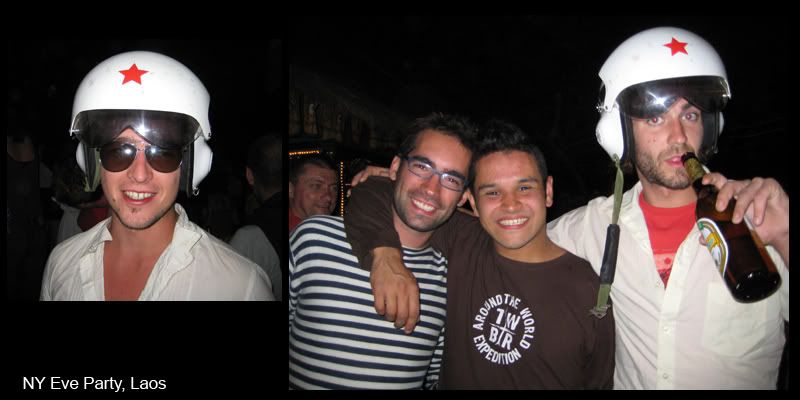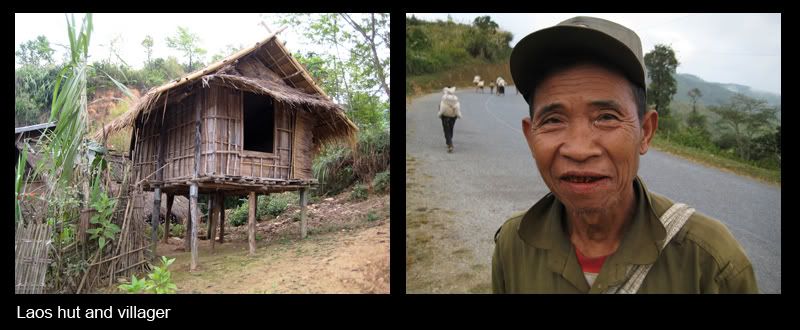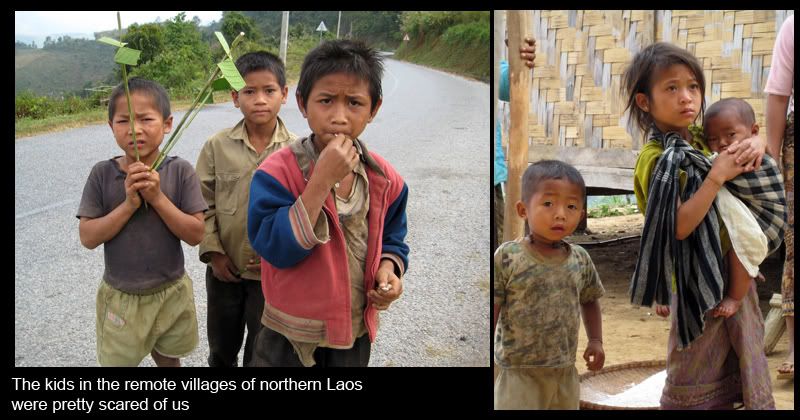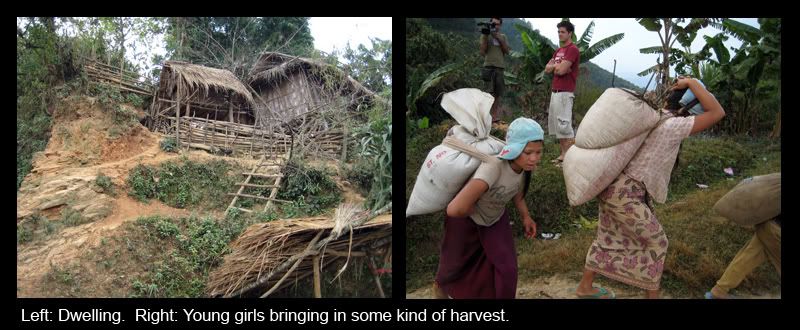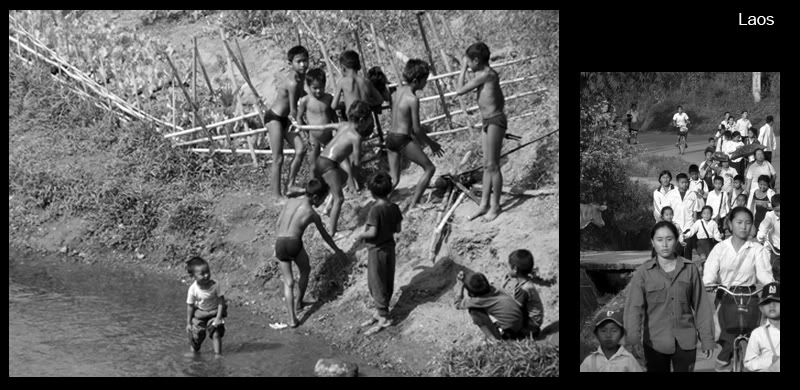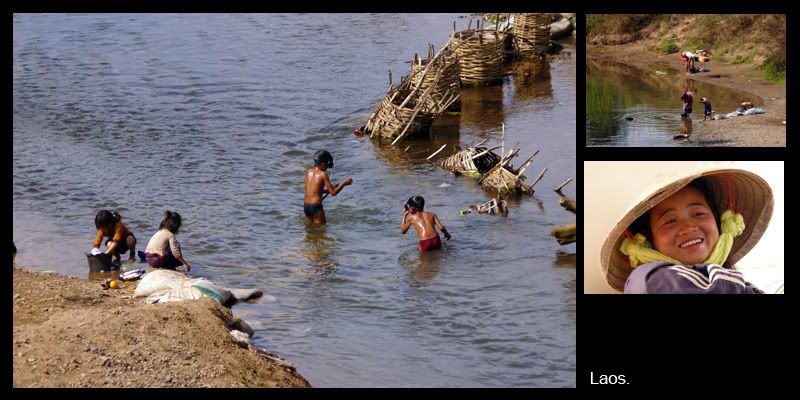Sihanoukville, Cambodia
January 9th and 10th, 2008
By Dan Murdoch
“The riders in a race do not stop when they reach the goal. There is a little finishing canter before coming to a standstill. There is time to hear the kind voices of friends and say to oneself, 'The work is done.'”
Oliver Wendell Holmes, Jr. American Judge and Jurist.
HOW do you finish a trip like this?
Where is the end?
Well, Sihanoukville, that was the finish line, right?
Actually no, it’s when we’ve visited the last charity. That’ll be the end.
But then there’s an interview the following day, so maybe that’s the then?
Actually I still need to write this blog, once I’ve posted it, then we’ll say it’s over, ok?
Well maybe, but I'm hanging around for a few weeks. Maybe once I'm home?
You just don’t want this to end do you?
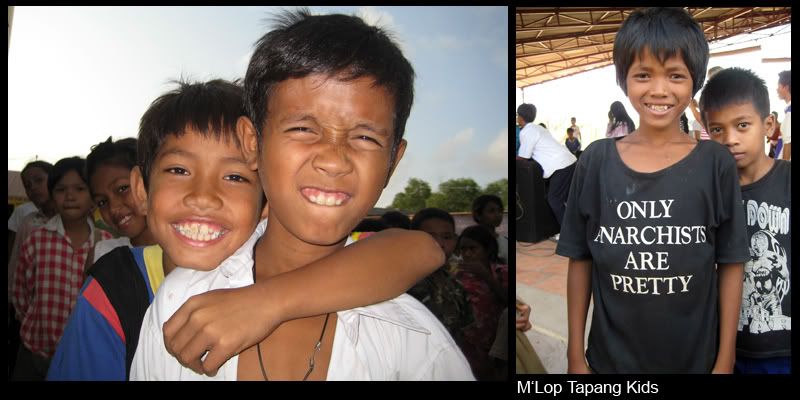
WE’D hoped to arrive in Sihanoukville early evening, but a series of press interviews delayed our departure from Phnom Penh.
The Americans had replaced a missing screw in Fez, restoring the pressure in a cylinder and solving the car’s power issues, but the brakes were still broken.
OJ, who was my new driving buddy following Carlos’s departure, refused to let me drive after witnessing me collide with a scooter in the city that afternoon. It is the first accident I’ve had in 16,000 miles of driving and it was entirely my fault- I’d attempted a tight u-turn at Hamilton pace on a major road, but we don’t have any wing mirrors and I hadn’t checked my blind spot. As Fez neared a right angle with the flow of traffic, a scooter with three people on board slammed into the driver’s door. Ooops.
Luckily no one came off, nor seemed hurt, but OJ, who has never been comfortable with my roadside manner, was not prepared to take any further risks.
It is only four hours from Phnom Penh to Sihanoukville, but the BBC reporter we’d spent much of the afternoon with was adamant driving was a bad idea.
“You really shouldn’t drive at night. The road is terrible. It’ll be pitch black. I wouldn’t do it, seriously, why put yourself in danger?”
But if we’d always followed advice like that we would never have left home. And when you’ve crossed the narrow, winding Anzob Pass at night, flanked by sheer drops and dodging unstoppable lorries, then driving to the beach holds few fears.
We were right to go for it- the road was beautiful, and in Fez we were able to stay close enough behind Ziggy to use the spread from its headlamps to light the way (Fez lights are pitiful).
I was happy to let OJ drive, but disappointed that after six months of driving Fez I wasn’t going to be able to take him over the finish line. Luckily OJ is a kind and noble gentleman, a few miles out of town we stopped to take a last photo of Trabant Trek on the road, and he handed me the keys.
“Do you wanna drive Fez in?”
Hell yeah.
It was strange standing there, the four of us, posing for photos with our arms round each other.
“This is it, the final stretch,” Lovey said.
But it still didn’t feel real.
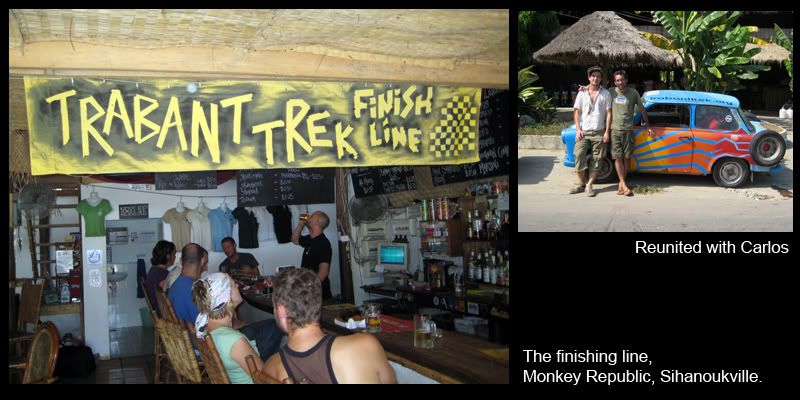
Shortly before midnight we pulled up to Monkey Republic, the bar-guesthouse where Carlos had booked rooms, to find the Spaniard with a small crowd of fans. Some sort of fireworks were set off, with a banner and lots of cheering. Characteristically we were about four hours late, so everyone was pretty merry, and the excitement in the air was palpable:
“We did it.”
“I can’t believe we actually made it.”
“We’re here.”
What else is there to say?
“How do you feel?” people would ask.
“Very strange.”
I don’t think I ever doubted that we would make it, and pretty much since we reached South East Asia it’s felt like we’re nearly finished.
“I’ll feel like it’s over once we’ve visited the charity,” I told people, and myself.
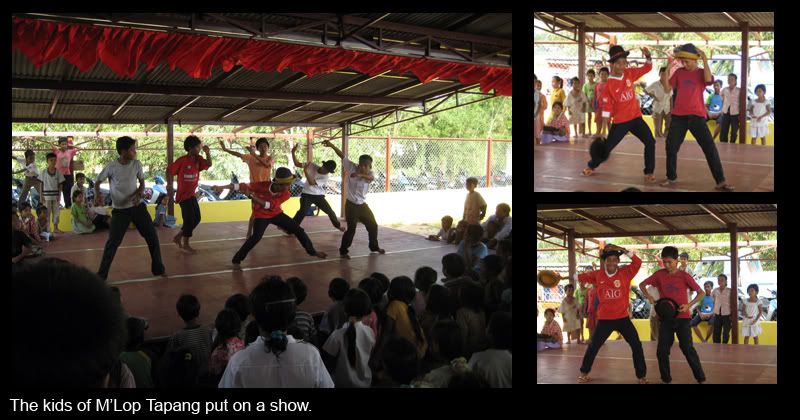
More hugging was followed by a trip down to a beach bar, for intensive celebrations culminating in Lovey and I having a violent falling out. What a way to finish the trip.
The following afternoon, with sore heads, we headed to our second charity, M’Lop Tapang. The wonderful children there put on a show for us, with traditional Khmer music and dancing complemented by more modern moves, break dancing and theatre.
The kids were great fun, and were obviously having a laugh dancing around on stage. There was plenty of hand holding and waving and jumping on the cars.
I'm not sure what it is about Cambodian children, they are just so smiley and sweet and friendly, it’s so touching. I'm not sure what they thought of us though, giant and pale with these odd cars.
We were given a tour of the school. It’s not as big as Mith Samlanh, but follows the same educational principals, minus the vocational training. Another group of people doing fantastic work for children with few opportunities. A worthy cause if ever there was one.
The last official engagement of Trabant Trek drew to a close, and we headed back to Monkey Republic.
“How do you feel?”
It still didn’t feel over. Maybe it would once I’d said goodbye to Carlos, who was leaving the following day to go to Canada and continue his travels. Nutter.
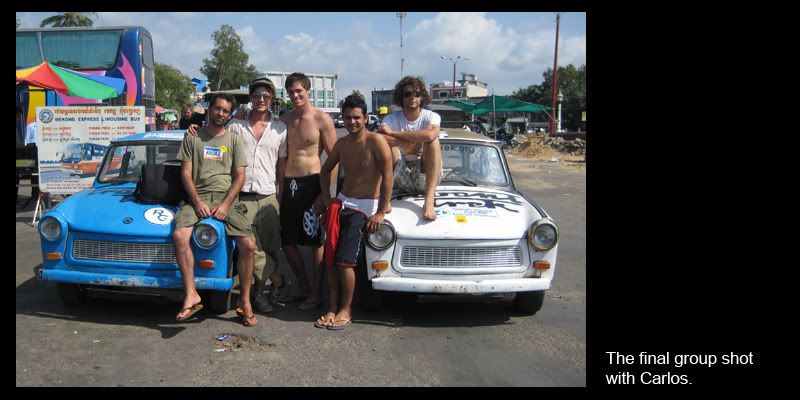
He drove Fez to the bus station, then handed me the keys, which felt pretty symbolic- that’s definitely the last time my co-driver will hand me the keys.
We hung around to wave him off. Strangely, in giant letters across both sides of his bus were the words “Child Sex Tourists”. I know there is a problem out here, but I think it’s a little more underground than carting bus loads of paedos around the country. There was some writing underneath the slogan but I couldn’t make it out…
I didn’t like saying goodbye to Carlos. I’ve only known the little Catalan for six months, but it was a pretty intensive six months. We spent a lot of it together in a little plastic box- I must have slept with Carlos more than any other man in my life. Despite what could have been a suffocating proximity, we remained good friends throughout, and other than a few weeks following a brief falling out in Ulaanbaatar, I always felt like he had my back.
Full of energy, he is always the first up in the morning, and normally stands by the door, or leaning against the car, looking pissed off and waiting for everyone else to sort themselves out. The length of time it takes to get going used to really wind him up- but by the end he just took the mick out of us all.
“So OJ can we go? Or do you want to take your top off, do some press ups, watch a film then moisturise?”
And the eyes, the ‘Spanish Eyes’ as they were quickly dubbed- the brooding, faux sexual look he pulls for cameras (and women), the dark, angry Latino stare he uses to show displeasure. Makes everyone crack up all the time: “Don’t do the eyes at me. He’s doing the eyes.”
His surname is Gey, which he pronounces ‘Hay’. This could be a little like Mrs Bucket pronouncing her name Mrs Bouquet. Or it may be the correct Catalan manner, who knows? Either way it means he is often simply referred to as The Gay. Or sometimes The Losbian, a cryptic play on Carlos Gey.
He has a passion for terrible puns, which always make Lovey crack up just because of their sheer awfulness, and he likes some terrible Spanish music. Countless times I have woken in Fez to see Carlos driving with his headphones on singing the female lead to a frightening Catalan love ballad at the top of his voice.
A friend once called for him on our China number.
“Can I speak to Carlos please?”
“What’s the passord?” I asked.
Without a pause he just said: “GAY.”
We laughed about that for a long time.
Despite his smaller stature and girl’s hips he walks a lot faster than me, often with his hands clasped firmly behind his back like Inspector Clouseau. I prefer to saunter around new places, slowly breathing it all in. But once Carlos has chosen his destination he is head down and get there.
Sometimes that is exactly what we needed on the trip: “Carlos gets things done,” OJ once said, quite correctly. Though sometimes I think maybe he acts a bit too quickly. He decided to go to Canada a while ago, set a date in his head, and has never wavered from it, despite only getting to spend a few days with us in Sihanoukville. But that’s Carlos, once he’s decided to do something he goes ahead and does it.
His English is good, and he picks up new words, phrases and insults quickly. But he is also good at making it appear that he understands, when really he doesn’t. So a typical conversation in Fez might go like this:
Me (lying in passenger bed): “I’ve checked the tank, we’ve got about four litres left.”
Carlos (returning from stall with sticky rice): “Okay.”
Me: “There’s not much life around here so we should probably stop at the next place we see and fill up.”
Carlos nods. Then a pause. Then he gets out of the car: “I'm just going to see how much gas we have left.”
Me: “No, mate, wait. Carlos…”
But he’s already out of the car, hood popped and checking the tank.
Because when Carlos decides to do something he goes ahead and does it.
I’ll miss that Spaniard.
TO SEE OUR PROGRESS ON VIDEO, PUT TRABANT TREK INTO YOU TUBE.
IF YOU READ AND ENJOYED THIS BLOG, WHY NOT SHOW YOUR APPRECIATION BY MAKING A SMALL DONATION?
www.firstgiving.com/trabanttrek
100% of your donation goes to Cambodian children’s charities.

Ends
mrdanmurdoch@gmail.com
For more of Dan’s blogs visit: http://danmurdoch.blogspot.com or www.trabanttrek.org

